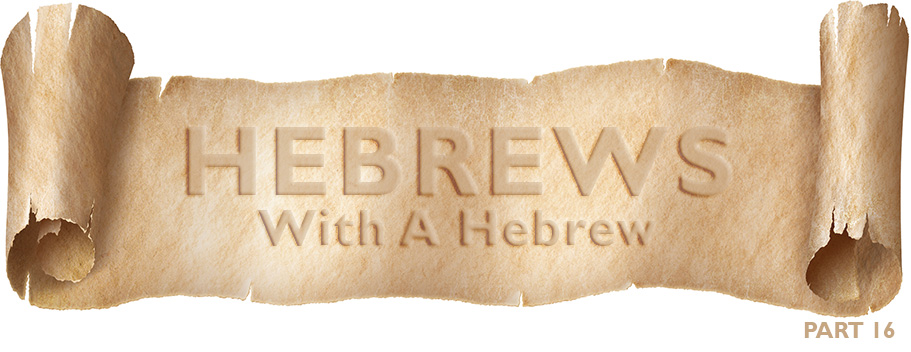Unable to Lay Foundations Twice (6:1-8)
In the previous blog, we examined the closing paragraph of chapter five. Scarcely had the writer introduced them to the fact that the Messiah is a priest after the order of Melchizedek when the writer realizes the spiritual condition of the readers and concludes he couldn’t proceed. By this time, they ought to be teachers but need again to be taught the basic principles of the oracles of God. They are babes still in need of milk rather than solid food.
The author states further his intention to go on to maturity. This seems odd since he said at first he couldn’t go on to these things, yet he does so anyway. These verses tell us why. In a nutshell, he now says that it is impossible to lay a foundation twice. He already laid a foundation in what he calls the “elementary teachings of Christ” (literally ‘elements of the beginning’). He lists six things that constitute these elements. It is doubtful that this was all there was to lay a foundation.
Many teachers and commentators point out that these six things might have been selected because they constitute what Hebrews learned about the Messiah from the foundation of the Old Testament. It is doubtful that that is so, but it is an interesting idea. Still, the question must be answered: Why does he go on after stating that they could not receive anything but the ABCs? Most likely because of the impossibility of reclaiming those who were on their way to apostatize by relaying this elementary teaching.
Several things that must be taken into account here to understand what the author is saying. First, verse 6 uses the words “if they fall away,” not talking about backsliding per se, but those who have ‘stepped aside’ and are on their way to apostasy. Notice he describes them as those who take their place with those who yelled, “Crucify him, crucify him” (Hebrews 6:6). He is not saying that these can never turn back, but in this context, relaying those foundations will never restore them. In that condition relaying the foundation will avail nothing. So, he determines he will go on to better things. He compares the Hebrews to two kinds of soil; the kind that drinks in the rain and produces a bountiful harvest and that which drinks in the same rain and produces thorns and thistles and has become utterly worthless. This is how it is with teaching; in some, it produces rich fruit, while in others, it produces thorns and thistles. The Word of God has a double effect so that it seals the fate of two groups: the saved who bear fruit and the damned who produce thorns and thistles. This is the biblical doctrine of the Perseverance of the Saints. Perhaps Charles Spurgeon said it best: “The saints will persevere in holiness because God will persevere in grace.”
Convinced of Hebrews’ Condition (6:9-12)
The author now expresses his confidence that the Hebrews are in the former condition. He believes the word he preached had fallen on good soil, evidenced by the fruit they already produced. These people had demonstrated their “love for the brethren,” which John says is the most important characteristic of those who belong to him.
He exhorts them now to continue to show “the same “earnestness to have the full assurance of hope until the end.” This passage demonstrates the proper relationship between faith and works. They must imitate those who, through “faith and patience, inherit the promises.”
Certainty of God’s Promise (6:13-20)
In this final paragraph of this chapter, the writer gives strong assurance of the certainty of God’s promise. He draws on the example of Abraham and the fact that since he had no one greater by whom to swear, he swore by himself, saying, ‘Surely I will bless you and multiply you.’ Thus, after waiting patiently for many years, he received the promise. God gave Abraham “two unchangeable things, in which it is impossible for God to lie.” First, there is the reliability of the promise, and second, the assurance of the oath (“he guaranteed with an oath we who have fled for refuge might have strong encouragement to hold fast to the hope set before us” (Hebrews 6:18).
These two things serve as an anchor of the soul, a hope that “enters into the inner place behind the curtain, where Jesus has gone as a forerunner on our behalf, having become a high priest forever after the order of Melchizedek” (6:19-20). He ties this hope to the surety that Messiah Jesus now resides in the ‘inner place behind the curtain,’ where he now exercises his priesthood according to the order of Melchizedek (6:20).





0 Comments